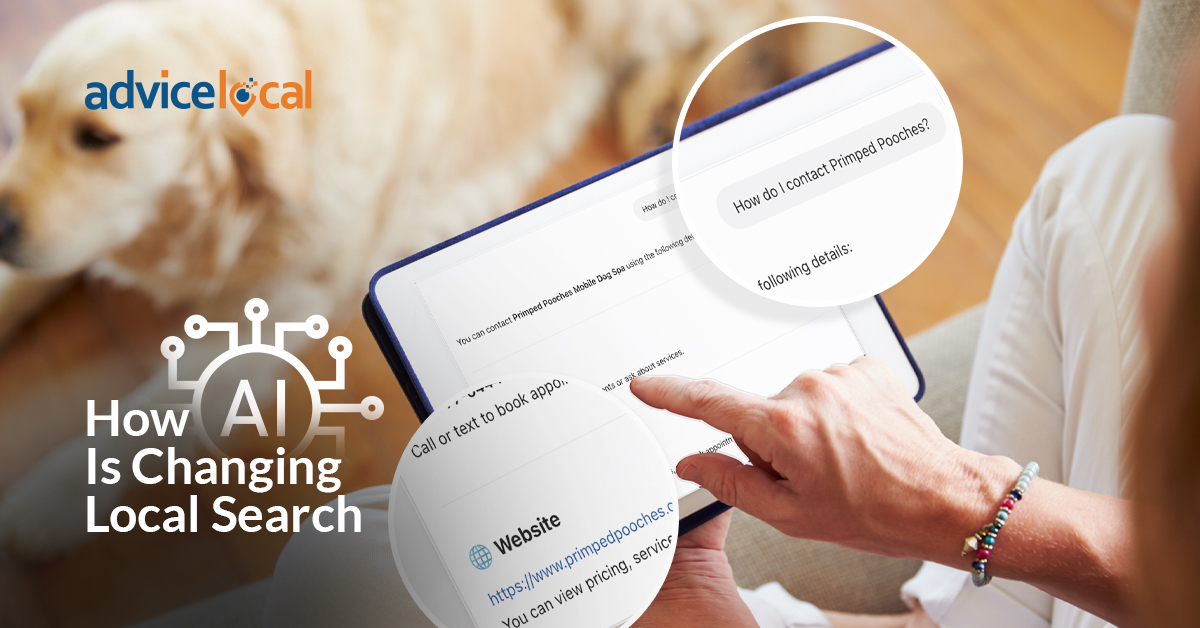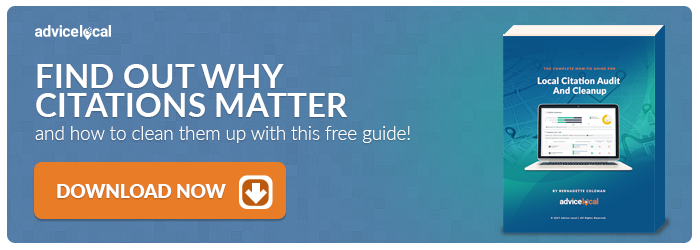Generative AI is the hot topic across industries, including speculation and testing within digital marketing. Even with its rapid development, rest assured that building on a solid foundation of SEO basics like clean citations, reputable listings management, and a focus on local intent will keep your clients at the top of search and answer engine (AE) results.
Before we look at specific examples of intent-centered optimization, let’s review some recent AI and local search numbers to help you get inside the heads of today’s consumers.
How AI Changes Local Search by the Numbers
Despite rumors to the contrary, SEO is not dead—and even with the rapid advances of AIs like ChatGPT, neither is Google search. According to a recent study from Bright Local, the new technology is used in tandem with traditional search, and consumer adoption rates vary generationally. Here are some of the statistics.
- 10% of Gen Z thinks of ChatGPT as their main search platform.
- 40–60% of searches conducted by a quarter of respondents have local intent.
- 85% find contact information and open hours “important.”
- 42% consider proximity (near me searches) to be “important.”
- 20% conduct local searches directly in maps.
So SEO isn’t going anywhere for the time being, as consumers regularly make multiple searches a day. We also see many people making decisions with immediacy or how soon they intend to visit in mind for location-based businesses. In order for your clients to be found in these AI searches, their businesses must be optimized for traditional and AI-initiated search queries.
The AI Local Search Consumer Experience Breakdown
Search intent and the consumer journey are vital parts of the AI local search experience. Consumers use generative AI products like ChatGPT, Gemini and Perplexity similarly to the way they use voice assistants. They ask multiple questions, building upon initial answers to learn more. AI local search is conversational.
To make sure your clients show up in these conversations, think about how a consumer searches and what they’re seeing. Let’s look at an example from ChatGPT.
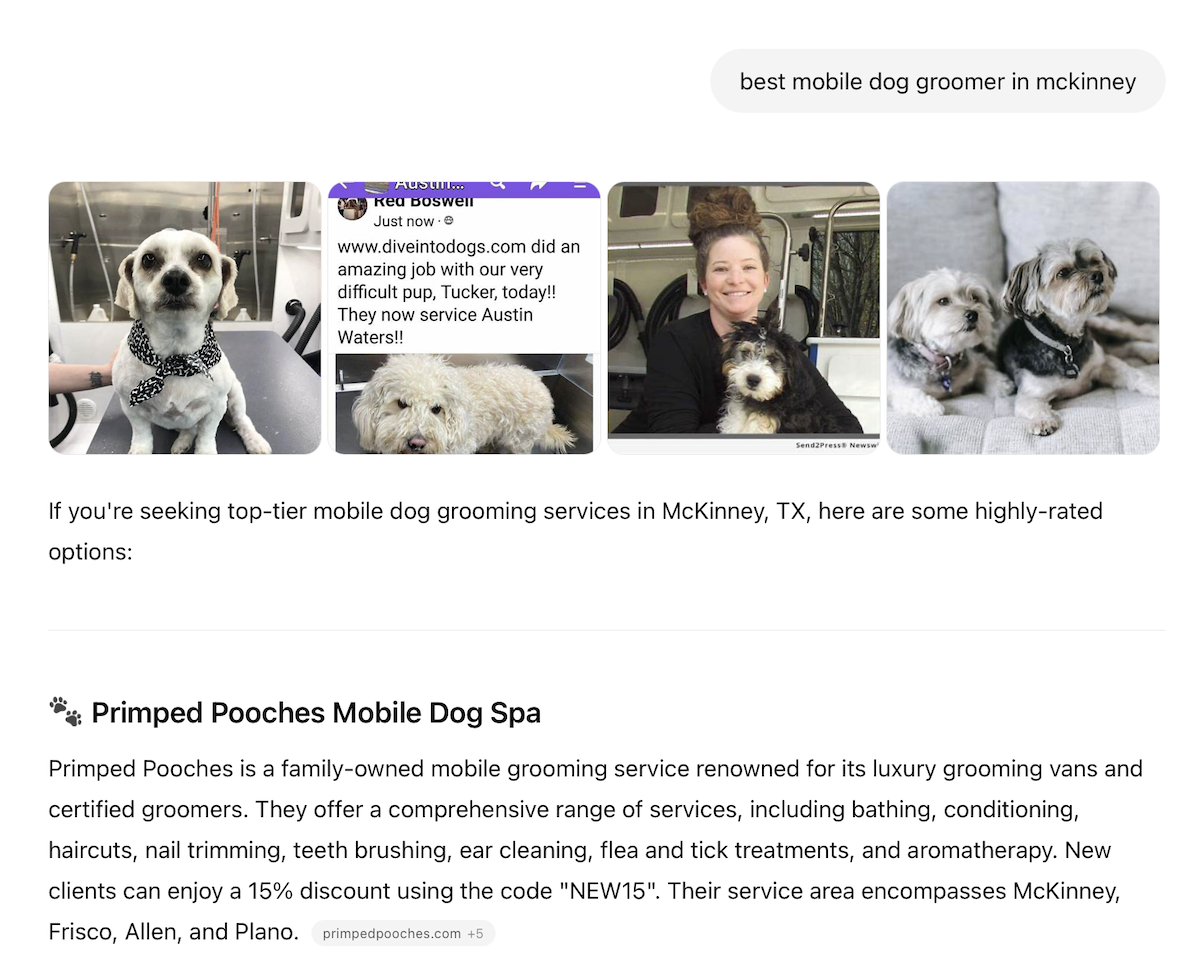
Here’s a primary query for the “BEST” local mobile groomer. It’s probably no surprise that ChatGPT returns pictures, even one with a review. But it also contains a description longer than the ones seen on Google or Bing SERPS, one compiled of data gleaned from multiple sources (more on that below). This means that traditional local search tactics like pictures with alt text and fresh reviews can get you far in AI search. For many of the people surveyed, if this description was favorable, they would stick with ChatGPT to ask more questions.
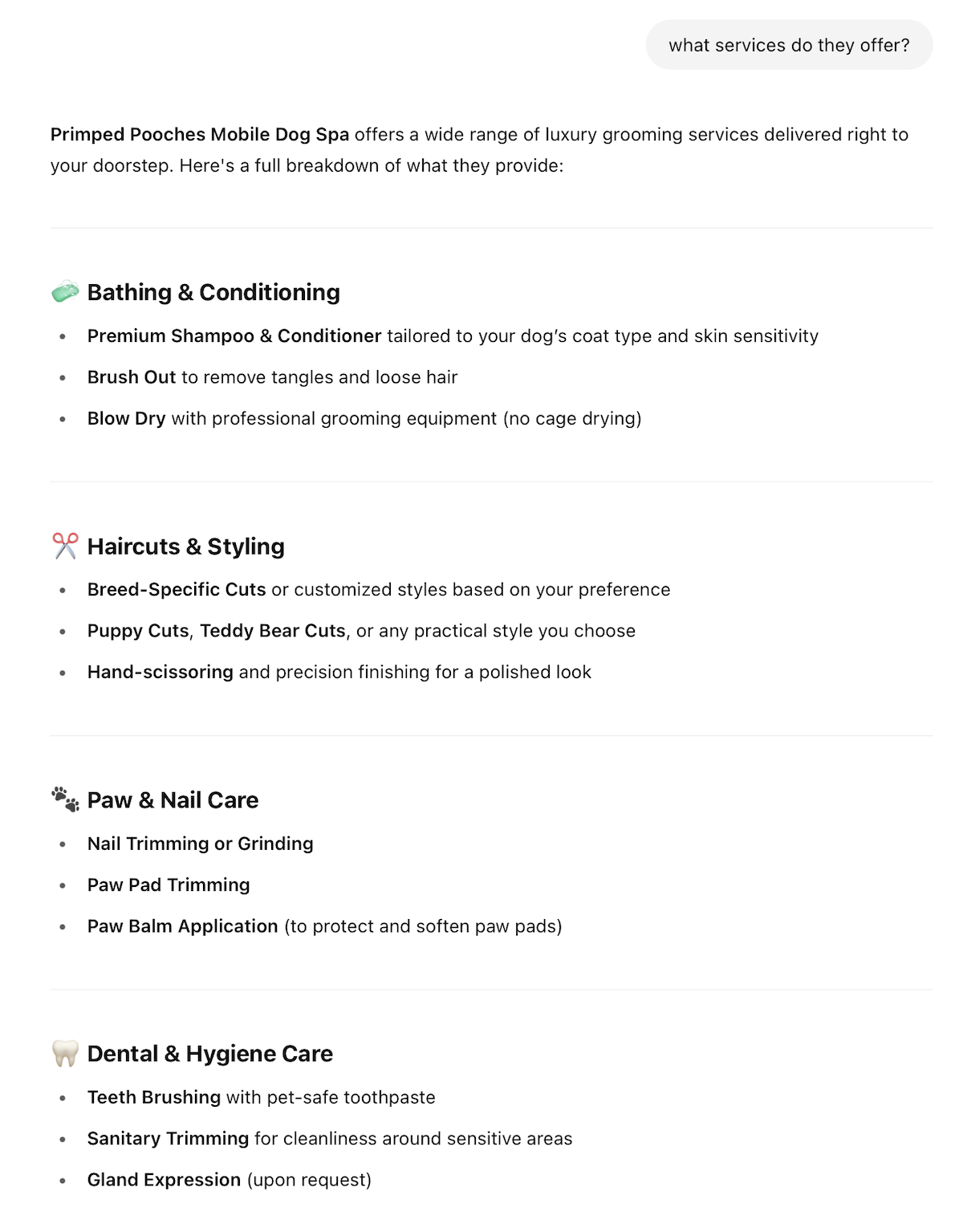
As the consumer continues their questions, “what services do they offer?” makes sense. They need to know if the provider offers what they need. The information is simple and easy-to-read. For this data to be found and to keep the consumer following breadcrumbs to your clients, it must exist in your owned and social media.
Having service pages with easily-read on-page content and code that’s crawlable by AI robots is imperative. For instance, let’s say our consumer likes what they see and will choose this provider—now they’ve got to contact them.
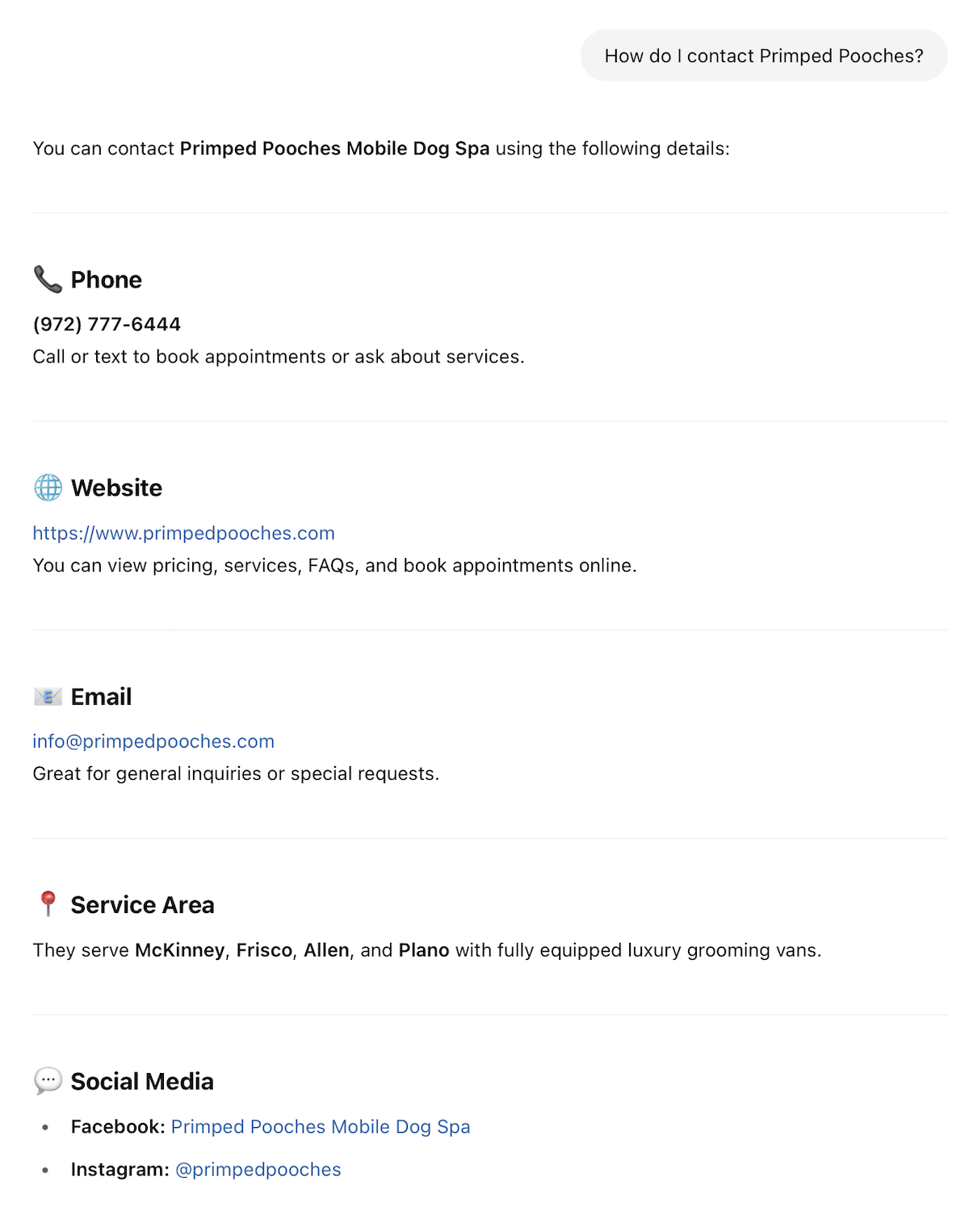
When tasked with finding contact information, ChatGPT returned the phone number, website, email address, service area and social media channels. The example is a mobile-based business, as location-based businesses would also include the physical address. This varied contact information allows the consumer to engage the business however they need to.
So what does this mean for local marketers and agency partners? They must simply continue to place value on listings management and directory placement for their clients. How do we know this? We have two more images for you from ChatGPT.
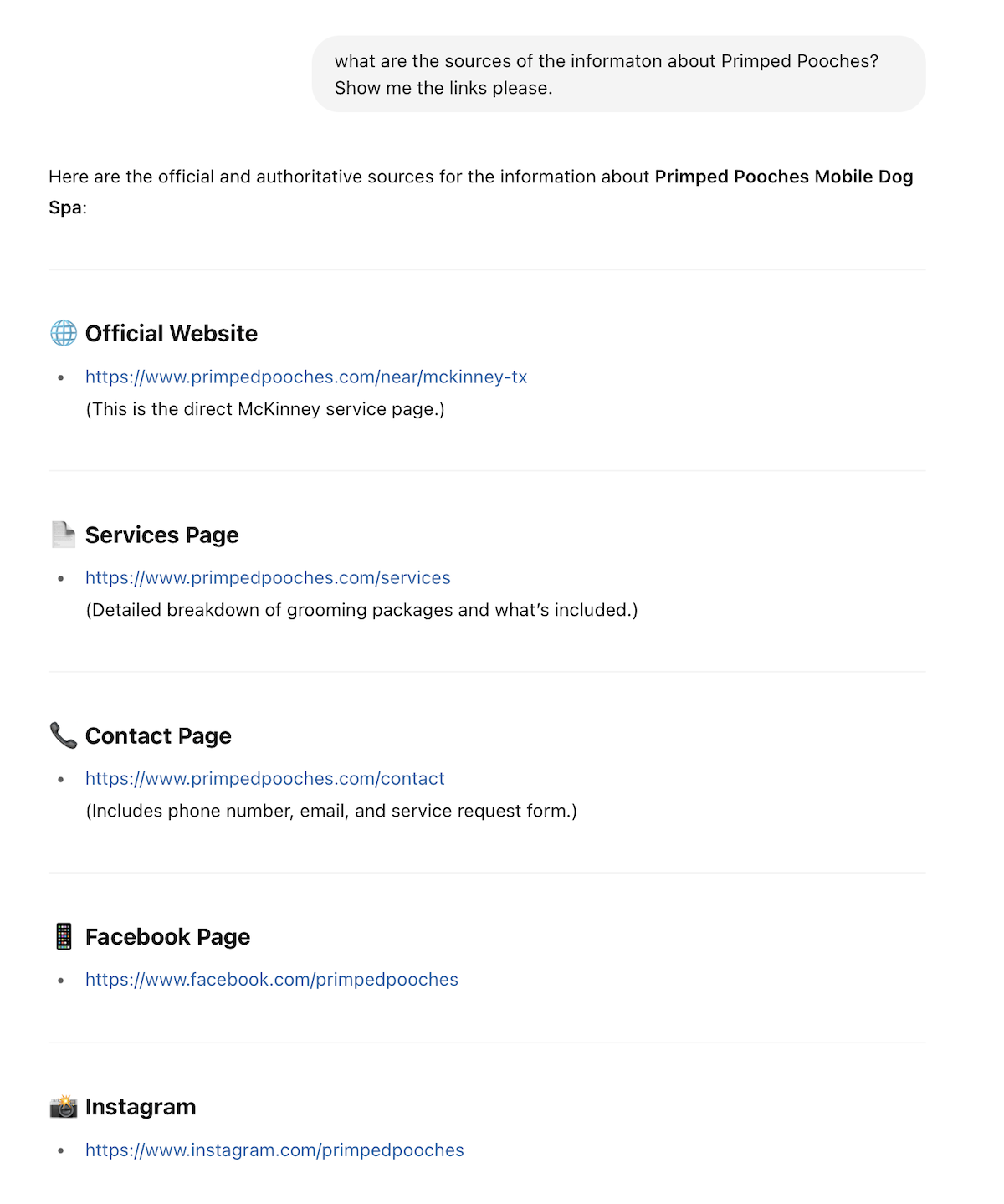
We asked ChatGPT to show the sources for the data it returned about our example client, and whether it looked at any directories to return contact information. ChatGPT prioritized “official and authoritative” sources like the website, service pages and social media, which we mentioned. We’ll wrap up with a focus on listings management, directories, and the importance of consistency and trust.
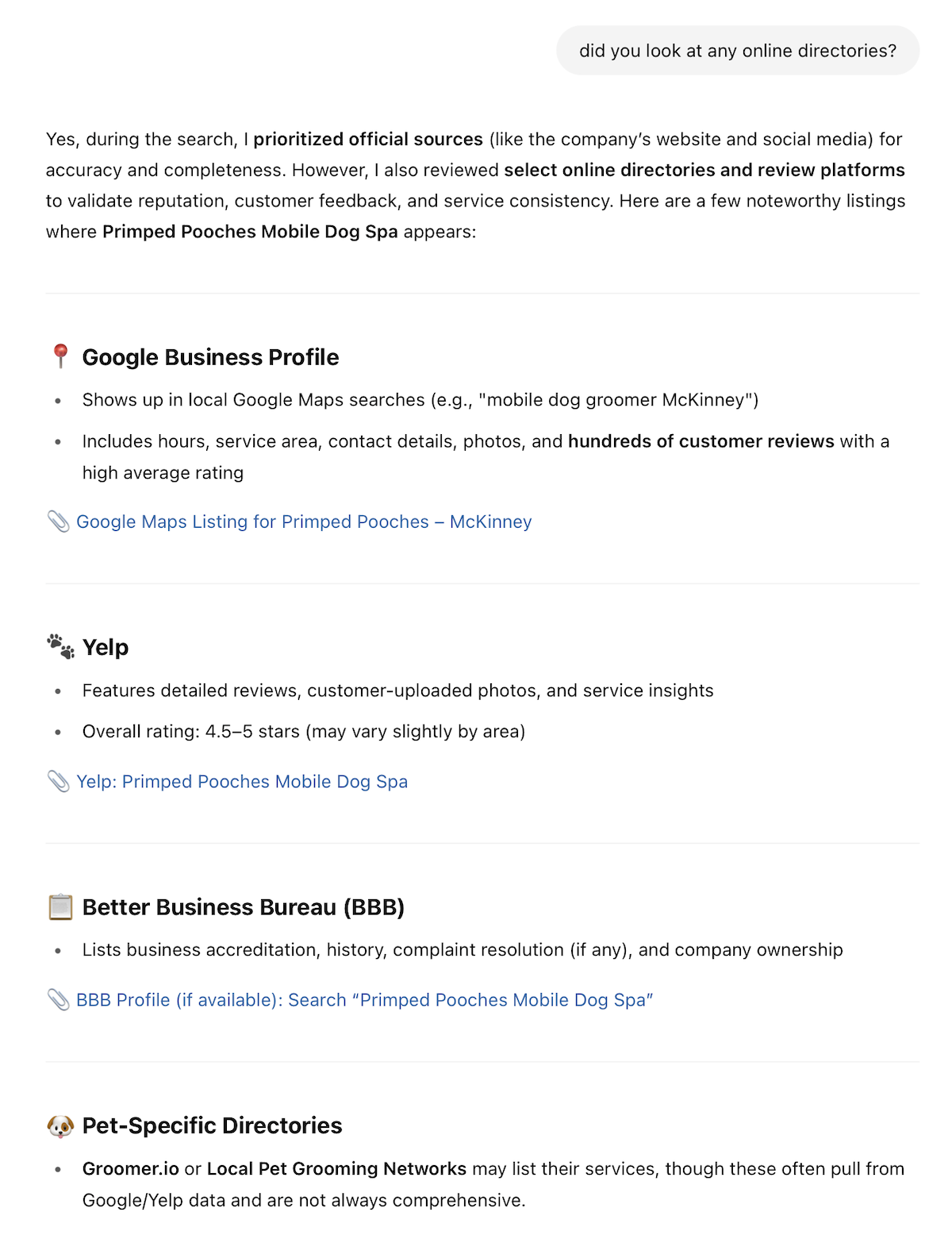
In this example, the BBB, Google Business Profile, Yelp and the pet vertical were part of the vast directory network deemed trustworthy by ChatGPT to return the client data in our search.
In brief, having accurate, consistently-updated names, addresses and phone numbers (NAP data) available in those directories is vital to your clients’ success.
Yes, we do talk about this all the time, as it’s the basis upon which we build so much more. Whenever clients make a change to any of their data, it has to be updated properly across channels. Listings management takes care of this. Any inconsistencies here can keep your clients out of search results, whether it’s traditional or AI search.
Google, Bing, and the various answer engines are looking for trust signals and citation consistency in directories in addition to synced operating hours, service areas and helpful, engaging content. We’ll continue to talk more about this, so stick with Advice Local to learn more, maintain client satisfaction and stay ahead of the game.
Get Knowledgeable Local Search Support and Tools for AI Search
Advice Local continues to provide the tools and tracking to keep our agency partners and local search marketers in the know when it comes to generative AI advances. Get to know more about how we can support you. Request a demo or give us a call at (214) 310-1356.



